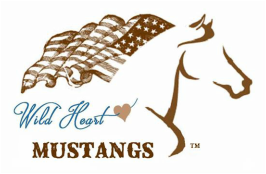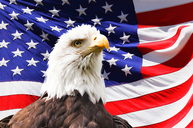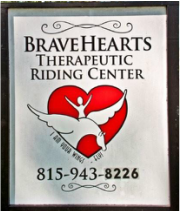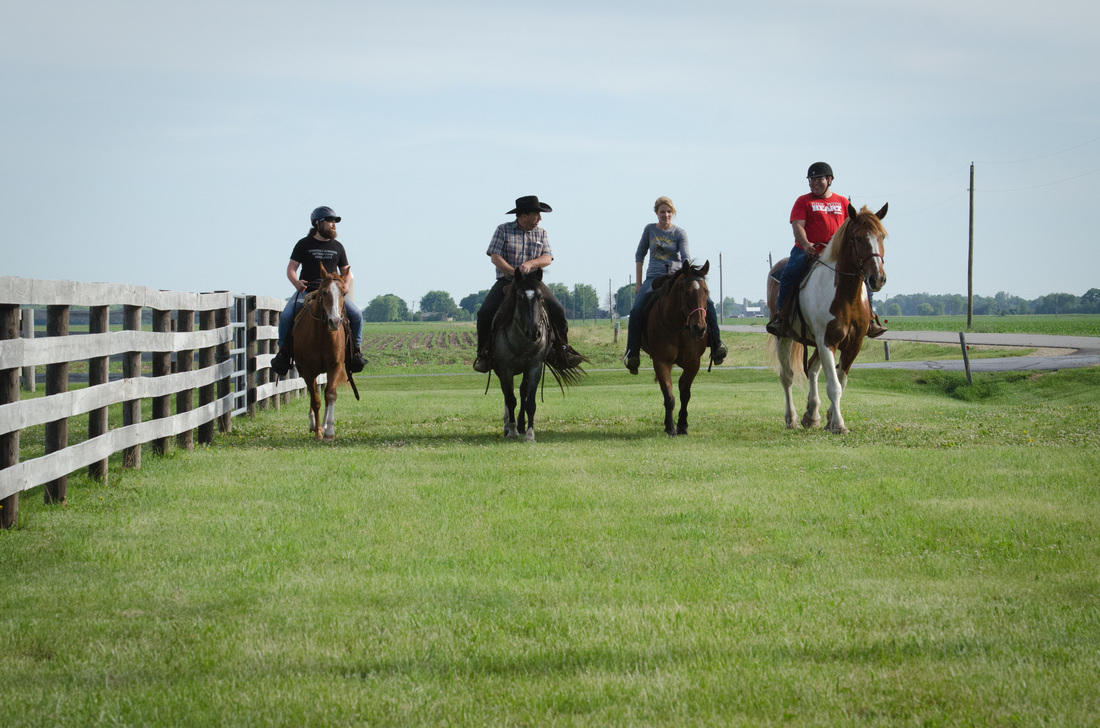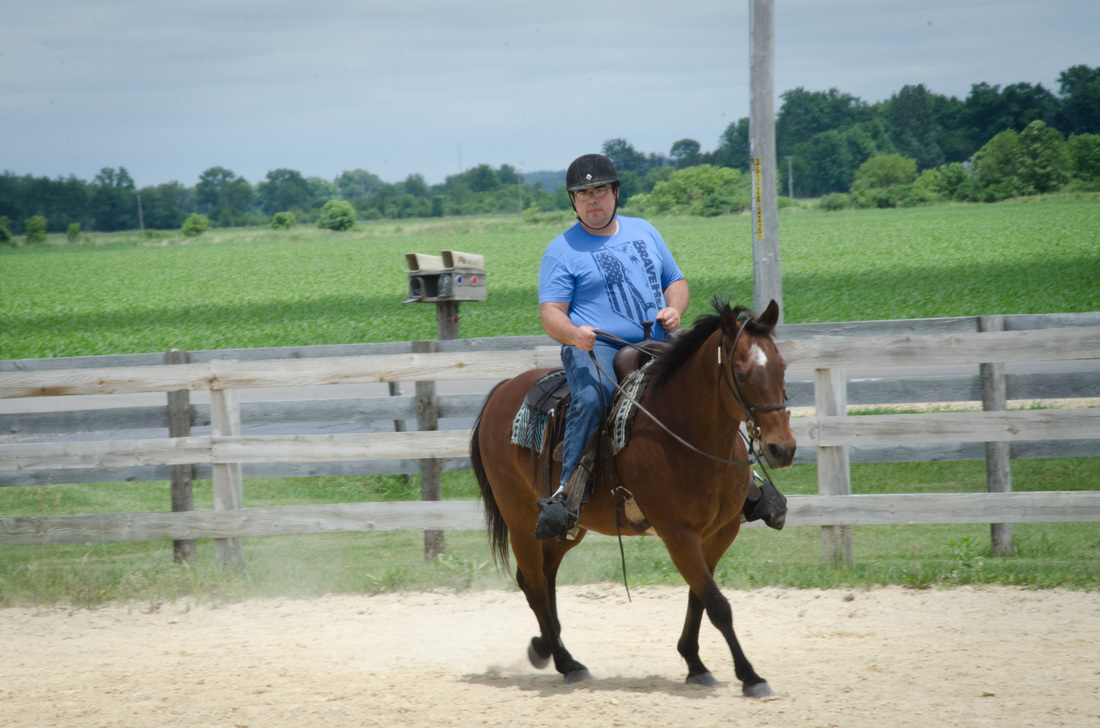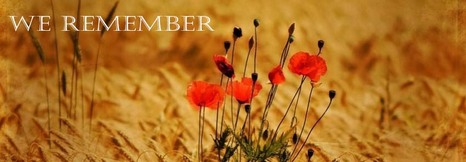RIDING FREEDOM'S TRAIL |
|
|
AMERICA THE BRAVEThe Wild Heart Mustangs™ logo features a strong symbol of something we feel passionate about - the American flag. The freedom that Americans enjoy has never been free. It's been defended and preserved by countless military men and women who've given their time, energy, strength, heart - and sometimes their lives - in the name of freedom.
This page is dedicated to those in the military now, and in the past, and to the families who watched, waited and prayed for the safety of their loved ones. Let us never forget those who have served this great country. Thank you ALL for your service! |
BraveHearts Therapeutic Riding
|
|
BraveHearts provides equine-assisted activities and therapies with teams of expert staff, dedicated volunteers and therapy horses at multiple safe and caring facilities. In addition to serving children and adults, BraveHearts provides innovative services to meet the needs of our military veterans and their families. By utilizing a faculty of national experts, BraveHearts is a center of excellence within the therapeutic industry through its unique efforts in programming, education and research.
|
BraveHearts Therapeutic Riding
General Information: Phone: 815.943.8226 Fax: 815.943.8426 7319 Maxon Road Harvard, IL 60033 For volunteer opportunities email: [email protected] |
BraveHearts is 501c3 nonprofit organization and a Professional Association for Therapeutic Horsemanship International (PATH Intl.) Premier Accredited Center, which provides equine-assisted services to children, adults and military veterans with various diagnoses. BraveHearts is the largest PATH Intl. center in the country providing equine-assisted activities to military veterans free of charge. In 2015, BraveHearts provided 17,515 sessions to 1,192 individuals with the help of over 306 volunteers.
Contact: Meggan Hill-McQueeney, President/COO
BraveHearts Therapeutic Riding & Educational Center
[email protected] or 847.366.4571
Contact: Meggan Hill-McQueeney, President/COO
BraveHearts Therapeutic Riding & Educational Center
[email protected] or 847.366.4571
WILD MUSTANGS MIRROR THE INNER TURMOIL OF THE VETERAN'S SOUL
by Tricia Carzoli
“Sober tears are better than [non-sober] tears any day,” U.S. Army Infantry veteran and BraveHearts Therapeutic Riding and Educational Center participant Cpl Mitchell Reno said. “I can spend time baring my soul to Boo-yah [a 21-year-old mustang], and I tell him that I see his scars. I tell him I know he hurts. I tell him I can relate to his hyper vigilance. …And then, I realize I am talking to myself. It is an internal dialogue, and Boo-yah really is a mirror to my soul.”
It is that incredible bond – that acknowledgement that both the veteran as well as the wild mustang comes from a state of heightened awareness – that makes the veteran and the wild mustang such a complimentary pair.
BraveHearts Chief Operating Officer and Professional Association of Therapeutic Horsemanship International Master Level Instructor Meggan Hill-McQueeney recognized the power behind this symbiotic relationship. It was the impetus behind her piloting this innovative program, writing curriculum and making presentations that encourages other facilities to give mustangs the opportunity to live purposeful lives alongside veterans.
It is that incredible bond – that acknowledgement that both the veteran as well as the wild mustang comes from a state of heightened awareness – that makes the veteran and the wild mustang such a complimentary pair.
BraveHearts Chief Operating Officer and Professional Association of Therapeutic Horsemanship International Master Level Instructor Meggan Hill-McQueeney recognized the power behind this symbiotic relationship. It was the impetus behind her piloting this innovative program, writing curriculum and making presentations that encourages other facilities to give mustangs the opportunity to live purposeful lives alongside veterans.
From left to right: US Army veteran Cpl Mitchell Reno on Dry, BraveHearts Director of Operations and PATH International Level Instructor Paddy McKevitt on Azul, BraveHearts CEO and PATH International Master Level Instructor Meggan Hill-McQueeney on Hank and US Marine Corps veteran Cpl Nicholas Montijo on Huff riding on the property of BraveHearts Therapeutic Riding and Educational Center in Harvard, IL
Photo Credit: Tricia Carzoli
Photo Credit: Tricia Carzoli
“Horses – mustangs – they saved me. I’d attempted suicide. I totaled five scars,” Reno explained. “But when I first touched Boo-yah – that very first time, it was incredible.”
Boo-yah came to BraveHearts through the Bureau of Land Management Rock Springs Checkerboard Roundup a year-and-a-half ago. “[The group of mustangs] were raw and fresh,” Reno said. “No one had touched them yet. It was incredible.”
It is that well-preserved rawness and freshness that continues to draw in veterans from across the country.
“That first touch, that first pet, that first time you pick up a hoof, those are amazing things to experience,” U.S. Marine Corps veteran and Professional Association of Therapeutic Horsemanship International Level Instructor Cpl Nicholas Montijo said.
BraveHearts staff now preserves these “firsts” for their veterans.
Boo-yah came to BraveHearts through the Bureau of Land Management Rock Springs Checkerboard Roundup a year-and-a-half ago. “[The group of mustangs] were raw and fresh,” Reno said. “No one had touched them yet. It was incredible.”
It is that well-preserved rawness and freshness that continues to draw in veterans from across the country.
“That first touch, that first pet, that first time you pick up a hoof, those are amazing things to experience,” U.S. Marine Corps veteran and Professional Association of Therapeutic Horsemanship International Level Instructor Cpl Nicholas Montijo said.
BraveHearts staff now preserves these “firsts” for their veterans.
|
US Marine Corps veteran and PATH International Level Instructor Cpl Nicholas Montijo riding at BraveHearts Therapeutic Riding and Educational Center in Harvard, IL
Photo Credit: Tricia Carzoli |
Nearly four years ago, Hill-McQueeney and BraveHearts Director of Operations and PATH International Level Instructor Paddy McKevitt brought four wild mustangs selected by the Bureau of Land Management through the Mustang Heritage Foundation to compete in the Mustang Million with two veterans. It was there that Hill-McQueeney and her staff knew they wanted to bring this opportunity to veterans across the country.
“It was the first time BraveHearts had worked with wild horses and we worked through the gentling pretty quickly to get ready for the competition,” Hill-McQueeney said. When Mighty, Bravo, Azul and Velvet came back from the Mustang Million, they were used in retreats, hippotherapy and foundation horsemanship. “They worked so well, that people didn’t believe they were mustangs. That was when we knew we needed to bring in more,” Hill-McQueeney said. |
|
In the spring of 2015, Hill-McQueeney, McKevitt and Montijo went to Wyoming with the purpose of bringing back five wild mustangs from the BLM – and this time, they took their time gentling the horses. Boo-yah, Maverick, Hero, Don Quixote and Batman have been at BraveHearts for about a year-and-a-half, and still they offer firsts that provide healing experiences for veterans. |
|
Two weeks ago, Reno experienced yet another first.
He had been talking to Boo-yah in his stall when the mustang “took two full steps forward, dropped his head and touched the tip of my fingers,” Reno said. “This time was different because he came the full way. …After he approached me and touched my hand, I dropped my hand and I rocked back. [Boo-yah] sighed again … and rocked forward … I reached out again and began to pet him, telling him I was so proud of him and how far he had come – I began to well up with emotion as I were talking to my child … This was a first for him. …He had 100% trust in me. … for a 21-year-old mustang that spent 20 years in the wild, that was a lot. That was a [heck] of a first.”
“These mustangs still are in a hyper vigilant state – and that is why this program is awesome. We [veterans] are also in a hyper vigilant state. We need to be reprogrammed just as they do,” Reno said.
“Mustangs are an adrenaline rush – and that is something I still crave as a veteran,” Montijo said. “That adrenaline rush is something you just can’t get with a domesticated horse. You can only find that adrenaline with the mustangs.”
Reno further explained that the rush – that burst of adrenaline – forces him to be present. “I can’t think about the past. I can’t think about the pain. I have to focus on everything that is right in front of me in that moment,” he said. “Once you are in the present and you work the mustang, once you start to work on demeanor and trust, your adrenaline starts to lower and drop,” he continued.
Incorporating these wild horses into the program has taken careful planning. “Our philosophy here at BraveHearts is to make sure we are as comfortable, as soft, as consistent as possible – for both the veteran and the horse,” Hill-McQueeney explained.
“We use a modified approach that is appropriate work for veterans. Our training style for our participants is a hybrid model. … Everything we do here is customized. Every person, every horse – we recognize them as individuals,” Hill-McQueeney said.
He had been talking to Boo-yah in his stall when the mustang “took two full steps forward, dropped his head and touched the tip of my fingers,” Reno said. “This time was different because he came the full way. …After he approached me and touched my hand, I dropped my hand and I rocked back. [Boo-yah] sighed again … and rocked forward … I reached out again and began to pet him, telling him I was so proud of him and how far he had come – I began to well up with emotion as I were talking to my child … This was a first for him. …He had 100% trust in me. … for a 21-year-old mustang that spent 20 years in the wild, that was a lot. That was a [heck] of a first.”
“These mustangs still are in a hyper vigilant state – and that is why this program is awesome. We [veterans] are also in a hyper vigilant state. We need to be reprogrammed just as they do,” Reno said.
“Mustangs are an adrenaline rush – and that is something I still crave as a veteran,” Montijo said. “That adrenaline rush is something you just can’t get with a domesticated horse. You can only find that adrenaline with the mustangs.”
Reno further explained that the rush – that burst of adrenaline – forces him to be present. “I can’t think about the past. I can’t think about the pain. I have to focus on everything that is right in front of me in that moment,” he said. “Once you are in the present and you work the mustang, once you start to work on demeanor and trust, your adrenaline starts to lower and drop,” he continued.
Incorporating these wild horses into the program has taken careful planning. “Our philosophy here at BraveHearts is to make sure we are as comfortable, as soft, as consistent as possible – for both the veteran and the horse,” Hill-McQueeney explained.
“We use a modified approach that is appropriate work for veterans. Our training style for our participants is a hybrid model. … Everything we do here is customized. Every person, every horse – we recognize them as individuals,” Hill-McQueeney said.
DEDICATIONS ARE WELCOME HERE
at any time
RESOURCES for VETERANS
BraveHearts Therapeutic Riding Center - (Harvard, IL and Poplar Grove, IL) BraveHearts provides equine-assisted activities and therapies with teams of expert staff, dedicated volunteers and therapy horses at multiple safe and caring facilities. In addition to serving children and adults, BraveHearts provides innovative services to meet the needs of our military veterans and their families. By utilizing a faculty of national experts, BraveHearts is a center of excellence within the therapeutic industry through its unique efforts in programming, education and research.
